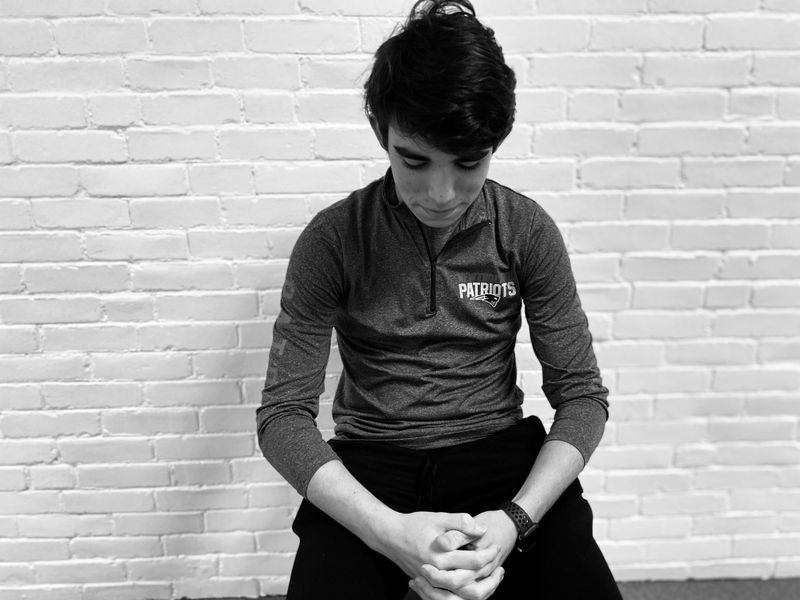We Are America
Marble Oceans
By Finn

Concord High School, Concord, New Hampshire
I was overcome as the sea of granite stretched in front me. Each marked the life of a dedicated public servant. A soft breeze whistled through trees and the sun rested high overhead. At the New Hampshire State Veterans Cemetery, I was greeted by those stones, resting on a freshly cut ocean of green. The smooth granite markers were engraved with only a few words, which marked an entire lifetime of service. A respectful environment is maintained by all who pass through the cemetery in Boscawen. It is not unlike another place I once visited.
On a trip to Washington, D.C., I visited Arlington National Cemetery, and have since recalled the camaraderie of the dead, with the final resting places of each soldier arranged in precise formation. Not only are there thousands of identical markers, but there is also total silence no matter how many are there to pay their respects. In thinking about my experiences in New Hampshire and Virginia, the most striking thing about a veterans cemetery is the unbiased manner in which the dead are laid to rest. I took note of the different symbols on each grave. Generals laid next to Privates. Jews and Gentiles buried side by side. Stars of David standing next to Catholic crosses, and other religious symbols representing men and women of more faiths; the American melting pot on full display. Race, religion, and even rank don’t separate the American service members who risked their lives for our freedom.
I have been to several places of worship. The first time I entered a temple was for the Jewish funeral of my grandfather. Although Judaism is part of my heritage, the customs were new to me. I wore an unfamiliar yarmulka, listened to prayer in an unfamiliar language, and tried to decipher unfamiliar symbols. These new experiences moved from the temple to the cemetery, where everyone was asked to partake in the Jewish tradition of shoveling dirt into the grave. All willingly participated: family, friends, strangers, most of other faiths. It was a moment of unity not unlike my experience at Arlington, where people offer respect, regardless of belief or culture.
It was more recently that those ideas were reinvigorated when I participated in a Catholic funeral. I was again in unfamiliar territory, even though we were honoring my paternal grandfather, but I felt I’d been there before. As I sat and listened, it dawned on me that the rituals followed a similar rhythm to those of the Jewish service. I noticed the similar points in the remembrances, the hymns, the readings. Even the buildings were similar, decorated with history and symbolism under ceilings that stretched toward eternity. Like those uniform stones in Arlington and Boscawen, we’re all the same in death. That is part of our human identity. My grandfather served in Korea as an Army sergeant. Surrounding him at the veterans cemetery are men and women who were once in Vietnam, the Gulf, and World War II. They represent all different ranks and religions, yet are buried side by side. I served as a pallbearer at his funeral. Six years earlier, I had participated in the burial of my other grandfather by wielding a shovel.
These three experiences are interconnected. We are all Americans, in life and in death. I may never be comfortable near cemeteries or funerals, but there are lessons to be learned from them. I have come to understand that there is more in religious customs that bring us together than pull us apart, more in life that unites than divides us. The supposedly “opposite” factions are not that different after all. It’s important that the ideas of diversity and service we espouse as our national ideology are continued after life ends. Maybe if we treated our neighbors as respectfully as we do in death, we could overcome petty differences that make us forget our common identity.
© Finn. All rights reserved. If you are interested in quoting this story, contact the national team and we can put you in touch with the author’s teacher.